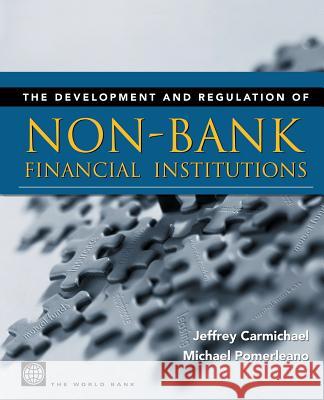The Development and Regulation of Non-Bank Financial Institutions » książka
The Development and Regulation of Non-Bank Financial Institutions
ISBN-13: 9780821348390 / Angielski / Miękka / 2002 / 248 str.
The principal role played by the financial system in any country is to provide the infrastructure to allow surplus resources to be allocated to those individuals and companies with deficits. The positive impact of a functioning financial system upon economic growth of a country is well documented. In most countries, the financial system extends beyond traditional banking institutions to include insurance companies, mutual funds, market makers and other financial service providers. These non-bank financial institutions provide services that are not necessarily suited to banks, serve as competition to banks, and specialize in sectors or groups. Having a multi-faceted financial system, which includes non-bank financial institutions, can protect economies from financial shocks. However, in developing countries that lack a coherent policy framework and effective regulations, non-bank financial institutions can exacerbate the fragility of the financial system. This book helps build an awareness of the potential of non-bank financial institutions for developing countries. It aims to assist policymakers in the creation of coherent policy structures, and sound regulatory and supervisory environments for the development of these institutions. It assists policymakers in learning the essential functions and characteristics of non-bank financial institutions with select chapters on insurance companies, mutual funds and pension schemes, securities markets, and leasing and real estate companies.











